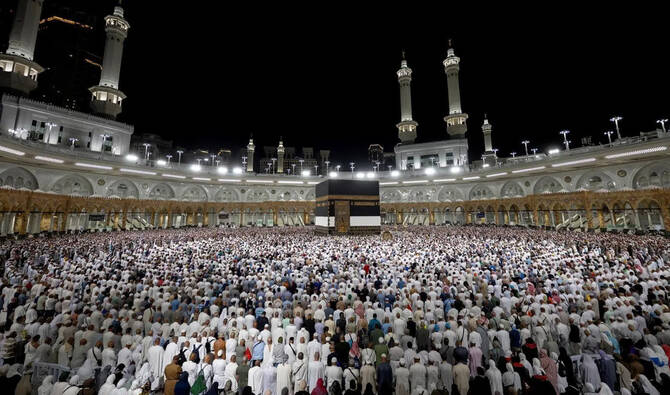Now Reading: 67,000 Hajj Pilgrims to Get Refunds by October 31 — Here’s How Much
-
01
67,000 Hajj Pilgrims to Get Refunds by October 31 — Here’s How Much
67,000 Hajj Pilgrims to Get Refunds by October 31 — Here’s How Much

The Ministry of Religious Affairs has announced that 67,377 Hajj pilgrims will receive refunds totaling Rs3.45 billion, which will be transferred directly to their bank accounts by October 31, 2025. This initiative was revealed by Sardar Muhammad Yousaf, highlighting the government’s commitment to transparency and fairness in the Hajj process.
This refund process is part of Pakistan’s ongoing effort to improve services for pilgrims and ensure that every rupee is accounted for. The ministry emphasized that all refunds are being calculated according to the actual expenses incurred during the pilgrimage.

Refund Amounts for Hajj Pilgrims
According to official data, the refund amount will vary depending on each pilgrim’s travel and accommodation expenses:
- 14% of pilgrims will receive refunds between Rs12,000 and Rs12,286.
- 16% will be refunded between Rs13,000 and Rs25,000.
- 20,302 pilgrims will get Rs75,000 each.
- 408 pilgrims will receive Rs110,000 in refunds.
Those not receiving refunds are pilgrims who have already received services matching the full value of their payments.
This transparent refund process is meant to build trust among citizens and assure them that their contributions are being managed responsibly.
Extra Facilities for Pilgrims: Bags, Scarves, and SIM Cards
Apart from financial refunds, the Ministry of Religious Affairs is also enhancing the travel experience for Hajj pilgrims. Every pilgrim will receive a trolley bag, a handbag, and scarves for women to make their journey easier and more comfortable.
Additionally, a Saudi mobile SIM card will be provided to all pilgrims, offering internet access and up to 3.5 minutes of free calls. This small but significant step helps ensure that Pakistani pilgrims can stay connected with their families during their sacred journey.
Hajj Package Costs for 2025
For the 2025 Hajj season, the government has finalized costs for both the long and short Hajj programs:
- The 40-day Hajj package will cost Rs11,50,000.
- The short Hajj program will cost Rs12,00,000.
Official bookings under the government scheme have already been completed, and private quota bookings are almost finalized. This structured approach ensures that the entire process remains well-organized and transparent.
Health and Safety Regulations for Pilgrims
To ensure that every pilgrim can safely perform Hajj, Dr. Attaur Rehman, Secretary of Hajj, confirmed that strict health regulations are being enforced this year.
The ministry has decided that individuals with severe illnesses, such as final-stage cancer, tuberculosis, or pregnant women in their last months, will not be allowed to travel for Hajj. This rule is intended to protect the well-being of all pilgrims and prevent medical emergencies during the journey.
Furthermore, any complaints related to the Hajj experience are being handled swiftly, with firm action taken against any violations or negligence.
Government’s Focus on Transparency and Comfort
The government has made it clear that its top priority is to make the Hajj pilgrimage smooth, safe, and transparent. By issuing refunds promptly and providing added benefits such as travel accessories and SIM cards, the Ministry of Religious Affairs aims to ensure that pilgrims feel valued and supported.
In the past, refund delays and service issues have caused frustration among pilgrims. However, this year’s plan is designed to avoid such problems through timely bank transfers and clear communication.
Why This Refund Policy Matters
For many Pakistani Muslims, Hajj is a once-in-a-lifetime spiritual journey. Managing its costs and logistics can be challenging, especially for those from modest financial backgrounds. The Hajj pilgrims refund policy brings relief to thousands of families, helping them recover funds that can be used for other essential needs.
This transparent and efficient system also builds public confidence in the Ministry of Religious Affairs and shows that the government values the hard-earned money of its citizens.
Final Thoughts
The announcement of refunds for 67,000 Hajj pilgrims marks a significant step toward improving Pakistan’s Hajj management system. By October 31, 2025, all refunds will be completed, ensuring that pilgrims are treated with fairness and respect.
With enhanced facilities, clear communication, and strict health measures, the 2025 Hajj is set to be one of the most organized and pilgrim-friendly experiences in recent years.













